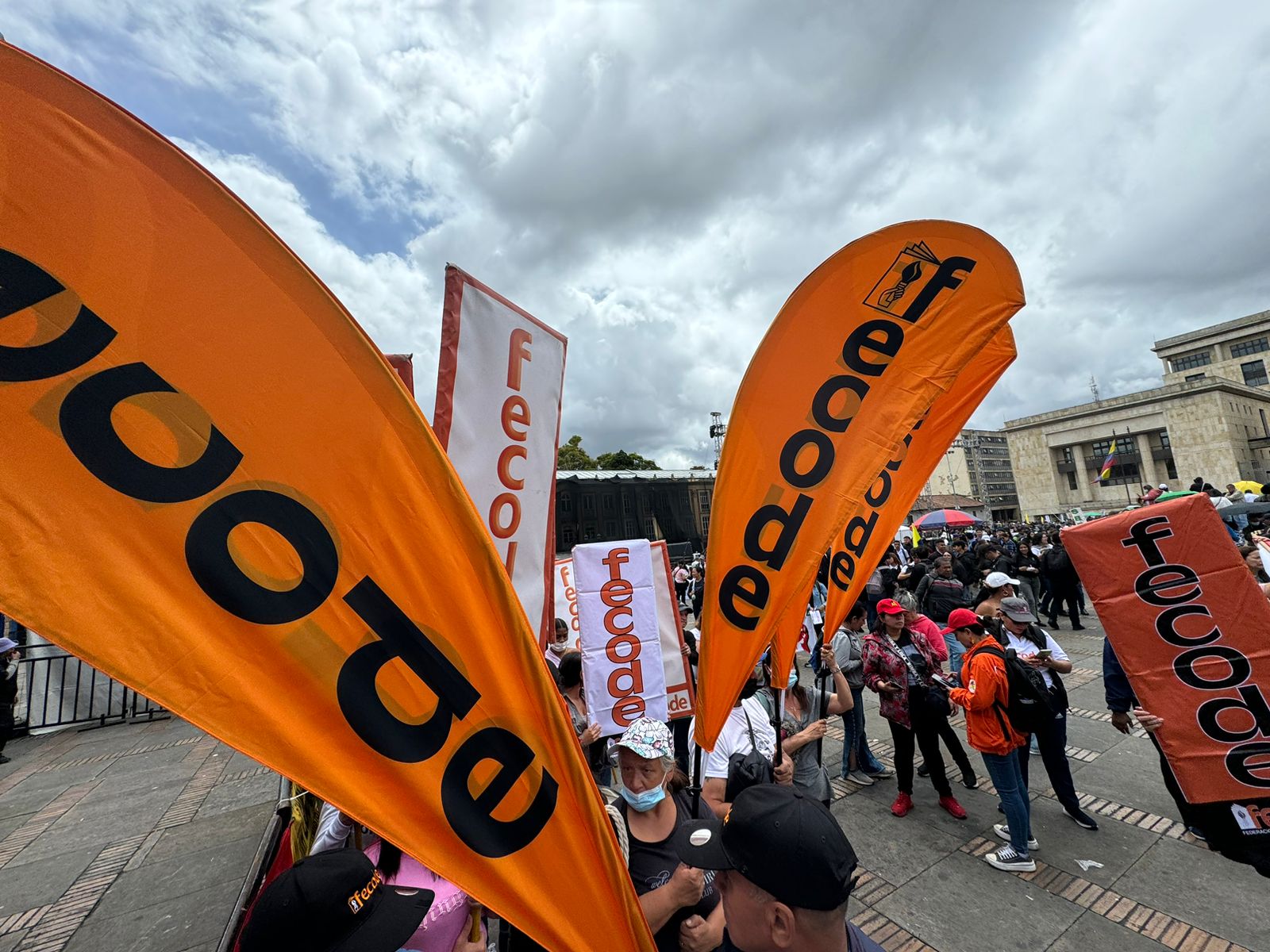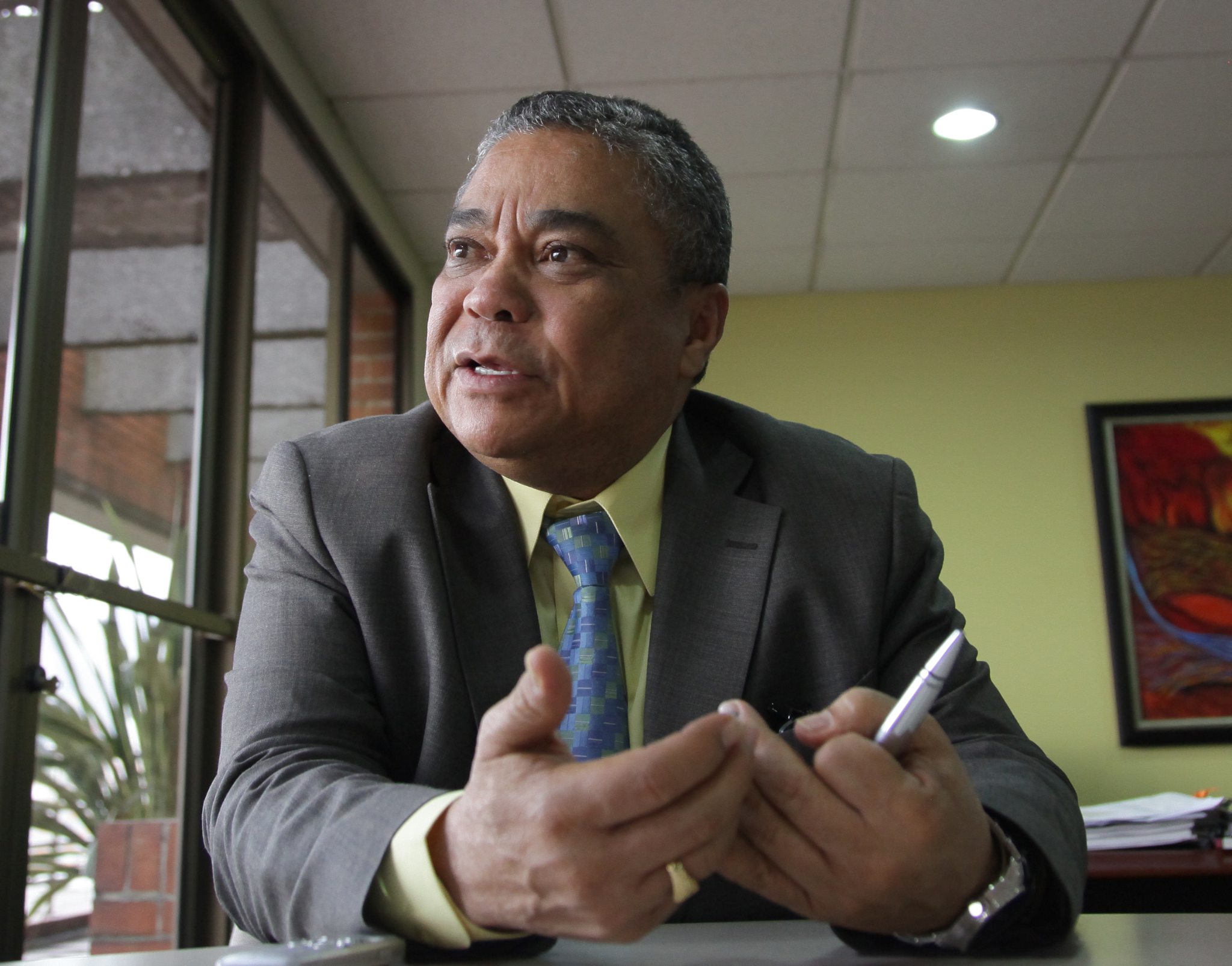Teachers' healthcare system: Fiduprevisora and IPS contracts end on July 31. Will teacher care be interrupted?

This Tuesday, Colombian teachers learned through a statement that , as of July 31, the Santa Fe de Bogotá Foundation will no longer provide services to teachers affiliated with the Teachers' Social Benefits Fund (FOMAG). This is because the contract signed with Fiduprevisora, the entity responsible for managing the fund's resources and for contracting and directly paying each of the private health insurance providers (IPS) that provide services to teachers, expires on that date.
However, this isn't the only contract about to expire. In fact, on July 31, all Fiduprevisora and Fomag contracts with the various operators nationwide will expire, so the contracts signed for clinics, hospitals, pharmaceutical operators, and other IPSs in the system are still valid until this date.
And what's most striking about this situation is that, to date, with just over a week to go until these deadlines, the new contracts with the providers that will make up the healthcare network for the more than 800,000 Fomag members, including teachers and their beneficiaries, have still not been signed.
Given this, a sense of uncertainty has begun to grow within the teaching profession regarding the future of its new healthcare model, which began to take effect on May 1, 2024, a period during which it has encountered numerous difficulties not only in hiring but also in providing care.
This is what Victoria Avendaño, a Fecode executive and one of the few voices in the teaching profession who has consistently held President Gustavo Petro's administration responsible for the teacher health crisis, said: "It's been 15 months since the new health contracting model for teachers was implemented. The problems continue due to improvisation, just as we stated from the beginning of the process. A significant percentage of IPS (Institute Health Services) across different levels of care are unemployed, services are suspended due to lack of timely payments, and continuity announcements are based on letters of intent. To top it all off, the contract with Fiduprevisora expires on July 31st."

National teachers' strike . Photo: Mauricio Moreno. EL TIEMPO
Given this situation, EL TIEMPO consulted with Fomag about what will happen with teachers' medical care starting August 1, when the current contracts are no longer in effect.
Regarding this, Aldo Cadena, vice president of Fomag , stated that "all of Fomag's contracts in this country expire on July 31st. And this week, until the 31st, we are preparing new contracts."
He added: " We guarantee that services will be provided, because we will continue contracts with the Santa Fe Foundation as well as with other operators."

Aldo Cadena, vice president of Fomag. Photo: EL TIEMPO Archive
However, the current concern is how this service will be provided, while new contracts are being prepared. According to Fomag, "their treatment will not be interrupted under the Prospective Global Payment (PGP) scheme with other IPSs in the network, as approved by the Board of Directors during the previous term."
This is a care model in which the country's private health institutions (IPS) are authorized to treat teachers without a contract. This was an emergency measure taken last year after a traumatic start to the new model, in which operations began with a small fraction of the signed contracts . This led to, among other things, interruptions in medical treatments, cancellations of appointments, and suspensions in the delivery of medications.
Added to this is another difficulty: Are the country's private health services providers willing to contract with Fomag, despite the constant complaints of late payments?
And it is worth remembering what happened at the end of March, when, at least temporarily, important medical centers in the country such as the Sanjosé Hospital in Bogotá and the Alma Mater Hospital in Medellín announced the suspension of their services to teachers due to significant delays in payments, a phenomenon reported by hundreds of IPS members of the system.
Precisely to solve these problems, Aldo Cadena (a trusted man of President Gustavo Petro) was appointed vice president of Fomag.
The official assured this newspaper that the situation has generally been normalizing; the fund's overdue portfolio is no more than 45 days old , and that outstanding payments represent 20 percent of the invoiced amounts, with 80 percent being paid on time.
All in all, the model's history, not only in terms of payments and contracting, but also in terms of the quality of care (Fomag has the highest rate of PQRs among all other EPSs in the health system, according to the Health Superintendency), could make IPSs think twice about signing new contracts.
The above has an additional ingredient: as of August 1, not only will the current contracts cease to apply, but a new contracting model will come into effect. One of its main ingredients is a new price list, which was approved this week by the Fomag board of directors and agreed upon by the Ministry of Education, Fiduprevisora, and Fecode.
Although this model is expected to facilitate hiring, some critics within the teaching profession fear that this flat rate will ultimately impact the willingness of IPSs to hire.
But it's important to remember that, despite all these changes and uncertainties, the exempted teachers' health plan may remain attractive to many providers, given that the UPC rate paid by the state for each of its members is 46.36 percent higher than what is paid under the standard plan.
MATEO CHACÓN ORDUZ | Deputy Editor, Education - Today's Life
eltiempo





